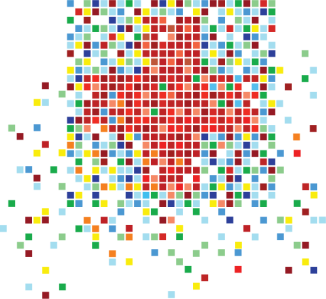The dutch health care system in a nutshell
The dutch health care system is a social security system. Several insurance companies share the load. A basic insurance is obligatory. Per year a co-payment is required, which can be funded by the government if incomes are too low. Tarifs vary according to the co-payment rate chosen. There are additive private insurances, which can be chosen on a voluntary basis.
The medical aid is very centralised and focusses on primary health care as the port of entrance. Every patient is registered with one family doctor’s practice. From there he can be referred to secondary care and eventually from secondary to tertiary. Emergency rooms are theoretically contactable without referral. Recently it has been applied that the out-patient visit without consecutive admission has to be paid privately, which is subject to discussion.
Secondary health care is usually hospital based and divided into “maatschappen”, best translated into “cooperations” or “partnerships”, a group of specialist which all have an equal share in the department. This makes it a quiet non-hierarchical system, which does reflect in the work environment. Specialists all make an investment in the beginning. Outpatient and follow-up care is usually given in poly-clinics located at the same hospital.
How to specialize in the Netherlands
Specialist education in the Netherlands is quiet school-like. A future specialist has to be admitted to the whole trajectory of education by the academic hospital. It usually consists of courses and work experience with in- and out-patient care, partly in tertiary and partly in secondary hospitals. The duration varies between 3 years for family medicine and 6 years for most of the fields.
To be admitted a completed PhD is usually helpful, as places are limited. The relations tied through research can open doors to a certain field. Work experience can be gained by working as an assistant doctor not in training for specialization (ANIOS).
Advantages
The non-hierarchical and school-like character makes for a very good educational program, where usually the more experienced people have an interest in educating the younger newbies. Everything is structured, rotations are clear and organized and preplanned. The same counts for courses.
Disadvantages
There is a very little chance of changing fields. It can be even hard to change cities, work places etc outside the preplanned schedule. Usually the time of 6 years, maybe even 10 years if you include the research phase are fixed and there is not much freedom for individual plans, interests or ideas.
You might not be able to enter the desired field at all. If you do not know important people, do not have a PhD or are older than 30 years old, for some fields doors might stay closed.
How to get your degree recognized in the Netherlands
To be able to work in the Netherlands you have to be registered in the “BIG-register“. This register keeps all data on medical staff. It also deals with law-enforcement on the basis of good clinical practice.
With an EU-Diploma there should be little difficulty to get a registration. The Dutch authorities ask a copy of the diploma, a CV and a letter from the authorities of all countries where you have been professionally recognized. All the documents have to be officially translated into Dutch, English, French or German. The costs for an application are 85EUR and duration is max 12 weeks. You can choose to get your specialization registered at the same time.
If your diploma originates from a university outside the EU or Switzerland, the case is more complicated. You have to proof your level of qualification. The steps are explained quiet clearly on the website of BIG-register. This might be a longer process, depending on the individual and might even involve additional training in a Dutch institution.
